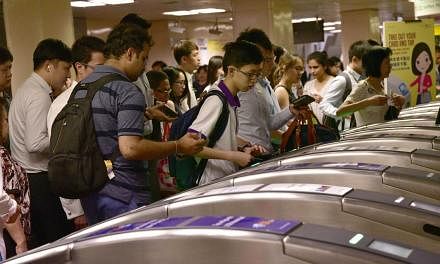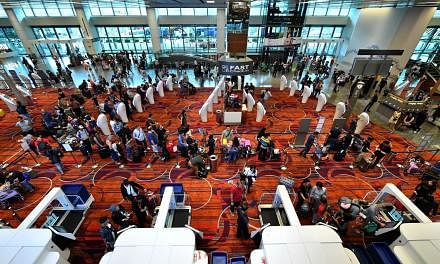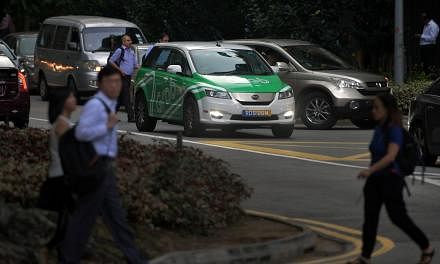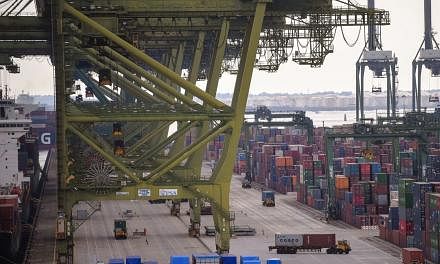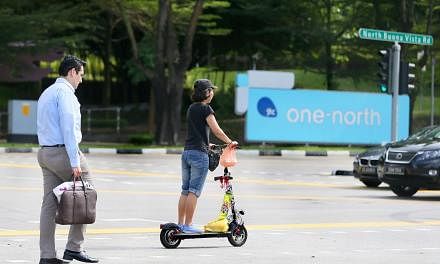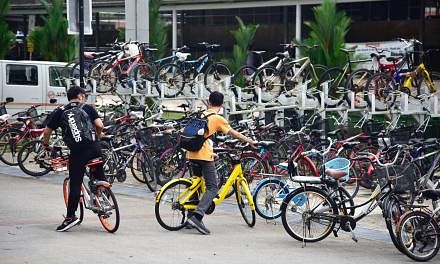SINGAPORE - Shipping firms can expect more government support as Singapore ramps up efforts to enhance the maritime sector amid growing global competition.
A fund to support business development plans, productivity measures and training requirements will receive a $100 million boost, said the Maritime and Port Authority of Singapore (MPA).
The money is expected to support about 30 new projects and 5,000 people annually, including initiatives to be rolled out as part of plans to move the port to Tuas.
The mammoth move of port functions from Tanjong Pagar, Pasir Panjang, Keppel and Brani to Tuas South will allow Singapore to handle about 65 million twenty-foot equivalent units (TEUs) of cargo a year - about double what the port handled last year.
The top-up to the fund - which will take the total amount set aside under the programme since 2007 to $285 million - comes even as the Port of Singapore had a record year in 2017.
Speaking in Parliament on Wednesday (March 7) during the debate on his ministry's budget, Senior Minister of State for Transport Lam Pin Min noted that in 2017, container throughput grew significantly by 8.9 per cent to 33.7 million TEUs, while cargo volumes rose 5.5 per cent year on year to 626.2 million tonnes.
But there are challenges, he warned, as he echoed a point raised by Mr Ang Wei Neng (Jurong GRC), who had pointed out that several Malaysian ports have announced expansion plans funded by Chinese investments.
This has raised concerns about the emergence of new and alternative trade routes in the region.
To stay ahead, the maritime sector, which accounts for about 7 per cent of Singapore's gross domestic product and more than 170,000 jobs, must continue to innovate and look for new growth opportunities, Mr Lam said.
With this in mind, MPA is launching the Maritime Transformation Programme, to collaborate with research agencies and institutes of higher learning to build new capabilities, for example, in maritime traffic management.
A maritime data hub - believed to be the first of its kind globally - will also be set up so that technology companies, start-ups and other stakeholders are able to access the information they need to come up with new digital apps and other services for the sector.
To upgrade the workforce, MPA will also roll out a new global talent programme by 2019 which will provide 70 per cent funding to companies that are keen to offer their workers overseas training.
Responding to Non-Constituency MP Dennis Tan, who raised concerns about safety, Mr Lam stressed that maritime safety is an important priority for MPA and especially so since the Singapore Strait is a busy waterway, he said.
Beyond rules and regulations, the focus is also on safety awareness among industry players, Mr Lam added.
Despite strong headwinds and keener competition, the Port of Singapore recorded a strong year in 2017.
The new initiatives should help boost the maritime sector's competitiveness, MPA's chief executive Andrew Tan told The Straits Times.
"Despite strong headwinds and keener competition, the Port of Singapore recorded a strong year in 2017. Container throughput grew by 8.9 per cent to 33.7 million TEUs, spurred by improvements in global trade growth and the repositioning of major shipping alliances. We will continue to enhance the value proposition of Singapore by strengthening our connectivity, building a vibrant innovation ecosystem, and developing a future-ready maritime workforce," he said.



